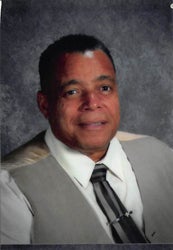How far have we come? — Part II
Published 12:35 pm Wednesday, March 8, 2017

- William McCargo
The Emancipation Proclamation of Sept. 22, 1862 was put in place to free most of the slaves. It sounded good, but did it free them?
Would you believe that I was part of slavery? It was called sharecrop farming. I am the son of a sharecropper, another name for slavery.
Many former slaves expected the federal government to award them certain amounts of land to compensate them for work done during the era of slavery. I know you have figured it out by now — it never happened.
After the Civil War, former slaves needed jobs and former slave owners needed workers. The absence of money or an independent banking system brought into existence sharecropping.
As a sharecropper’s son, I was a part of that system.
The system of sharecropping was a form of unrequited disparity between landowner and tenant, in that the landowner allowed the tenant to use certain portions of his land to produce agricultural products (i.e. tobacco), promising equal shares in profits and land ownership. Sharecroppers were promised if they worked hard, they would make a profit and would start their own farm or pursue other avenues.
An example of this is a landowner loaning out one acre to the tenant and if the tenant had children. The tenant and his children had to work all acres, including the landowners’ as well as the tenants, using a half and half system where all profits made would be shared equally.
At the end of the crop harvest, no profits were shared, the landowner received free labor and the tenant and his family received nothing for their hard labor except a huge mercantile expense, in which the tenant could not fully pay, therefore, the cycle continued year after year.
Are we still sharecropping or are we still waiting for that portion of land in the symbolism of systems, such as the postal, law enforcement, judicial, educational, political, housing management, social services and workforce?
William H. McCargo is an author and president of the Charlotte County NAACP. His email address is mccargoh@gmail.com.

